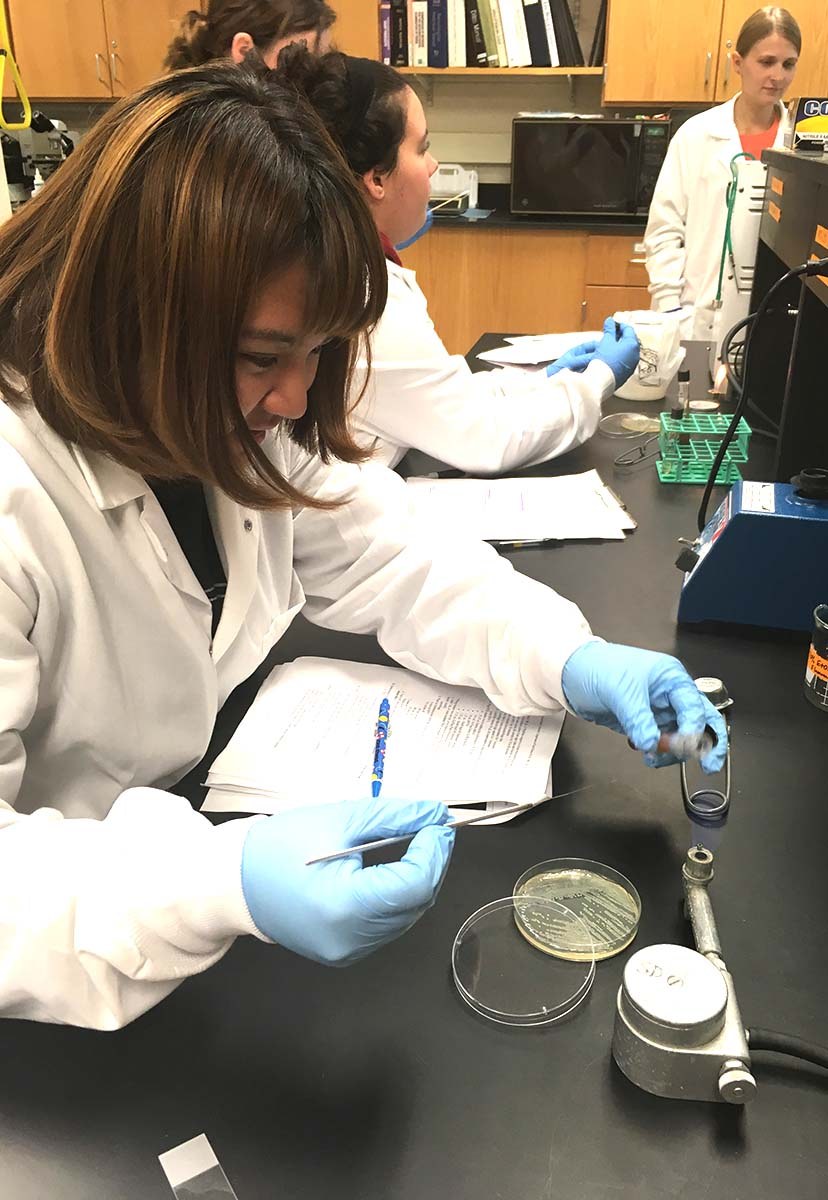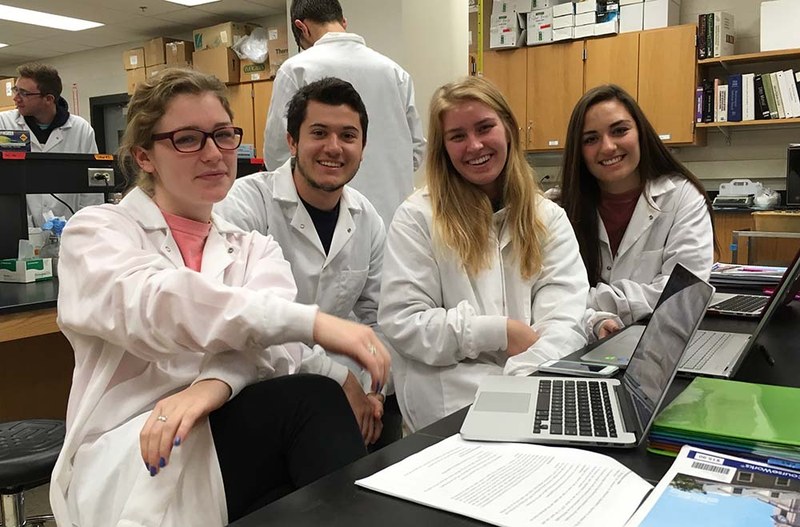
FDSC 409 students working on identification of microorganisms isolated from food.
FDSC 409 Laboratory in Food Microbiology (2 cr) - Fall semester
FD SC 409 Laboratory in Food Microbiology (2) Food Microbiology Laboratory is intended to demonstrate microbiological concepts through the appropriate use of equipment and laboratory procedures. The laboratory focuses on the practical application of microbiological principles to foods and food ingredients based on the following experiences: development of proficiency in using selected microbiological techniques currently employed in regulatory, quality control and research laboratories; performance of specific microbiological analyses of foods to assess numbers and kinds of spoilage organisms or foodborne pathogens; evaluation of the effects of several processing methods on growth and survival of microorganisms. The course emphasizes problem-solving and critical thinking as manifested by communication skills (such as writing); scientific analysis of data, including statistics where applicable; and usage of primary scientific sources in the food microbiology literature. Practical laboratory skills are assessed through measurement of proficiency. The evaluation will be conducted via projects and examinations throughout the semester. This course is required for Food Science majors. Practical laboratory skills are assessed using written lab reports, projects, and examinations.


Students working on their final FDSC 409 projects.
FDSC 497 Foodborne Pathogen Genomic Epidemiology (3 cr) - Spring Semester
With an estimated 9.4 million cases of foodborne illness occurring on a yearly basis in the U.S. alone, there is an urgent need for improved approaches to foodborne outbreak investigations to effectively limit or prevent such events. Modern, genomics-based tools have become invaluable working towards this goal and can be applied beyond detection and tracking of pathogens along the food supply chain, to better understand fundamental biological functions of microorganism in agricultural and food systems.
Being able to draw epidemiologically and biologically meaningful information from an ever-growing amount of publicly available genomic sequencing data is critical for the advancement of foodborne pathogen surveillance, food safety and public health, and is valuable also in other fields that benefit from comparative genomics. The goal of this course is to equip students of food, agricultural and life sciences with epidemiological and bioinformatics skills needed for comparative genomics and interpretation of whole genome sequencing data for foodborne outbreak investigation and beyond. Students work in the class on data from a real-life outbreak case.
This course is designed for upper-level undergraduate and graduate students.


FDSC/INTAG 460 Food Production in Italy (1 cr) - Spring break study abroad
FD SC / INTAG 460 is designed to give upper-level food science students an appreciation of the European food production norms through the lens of northern Italy. Students will experience behind the scenes tours, demonstrations, and hands-on activities in the Emilia-Romagna and Piemonte regions of Italy.
The course consists of pre-trip classes/meetings and a faculty-guided trip of a European country with significant food history and culture, Italy. The course integrates and builds upon core concepts in food chemistry and food microbiology. As such, FD SC / INTAG 460 is targeted towards upper-level food science undergraduate students, as well as food science graduate students.
This course aims to demonstrate basic food science concepts (e.g., food chemistry, food microbiology) within the context of brewing chemistry and fermentation science. The course is offered every other year. Next offering will be in Spring 2021.



